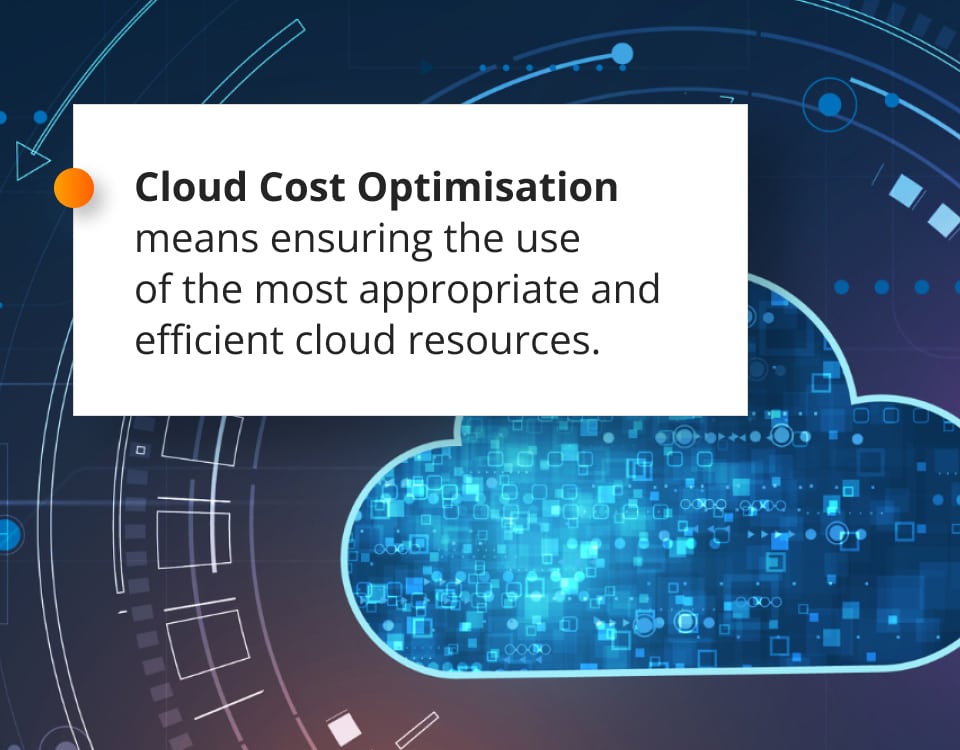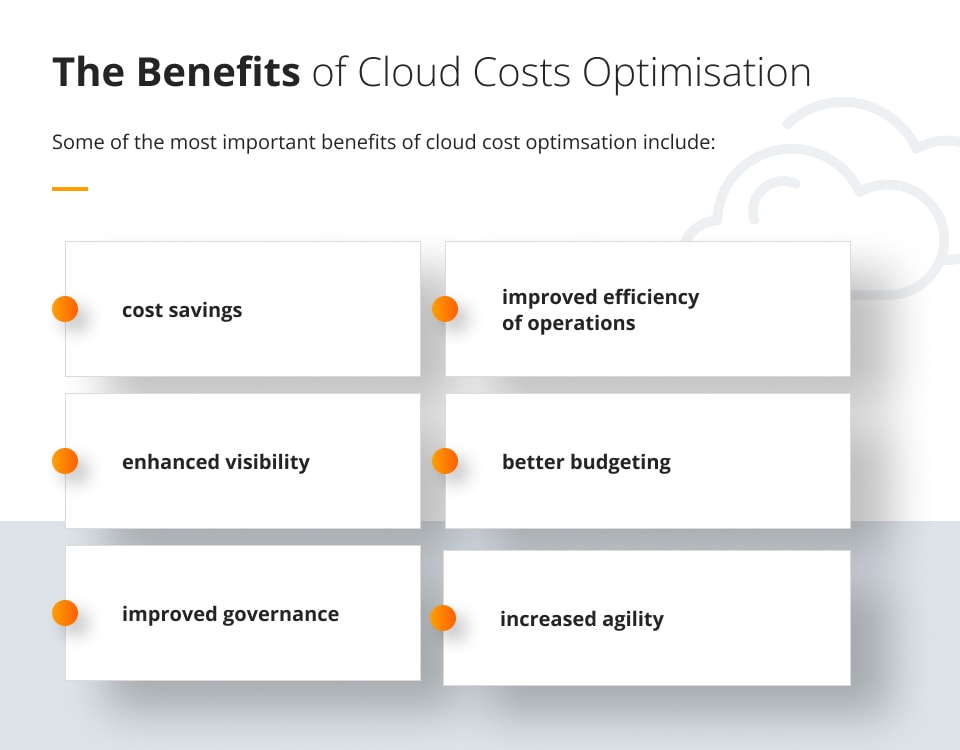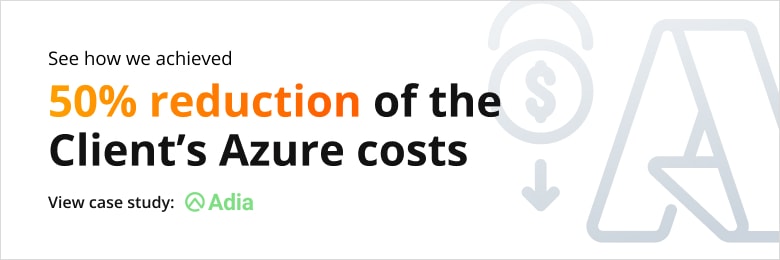
Cloud cost optimisation: how to reduce your cloud spend and maximise ROI?
Cloud cost optimisation refers to the process of managing and reducing the costs associated with using cloud services. As such, it is an essential part of cloud management that can provide organisations with several benefits. Let's look at it in more detail.
What is cloud cost optimisation
It serves as a mean of identifying mismanaged resources, saving costs, and eliminating waste. With the current global shift to cloud environment, it is no wonder that for 64% of respondents of a cloud cost management survey, cloud cost optimisation has become one of the biggest concerns linked to running the cloud.
The benefits of cloud costs optimisation
Some of the most important benefits of cloud cost optimisation include:
- cost savings obtained by optimising cloud usage and reducing unnecessary spending,
- improved efficiency of operations by optimising usage and reducing the amount of resources they consume,
- enhanced visibility into cloud usage and spending, allowing organisations to identify areas where they can optimise usage and reduce costs,
- better budgeting obtained by better understanding of cloud usage and spending patterns,
- improved governance by implementing policies and procedures to optimise cloud usage,
- increased agility by reducing costs and improving efficiency.
Tools and techniques for Cloud Services cost optimisation
There are several tools and techniques companies can use to optimise their cloud costs. Some of the most important ones include:
- Cloud cost management tools such as AWS Cost Explorer, Azure Cost Management and Google Cloud Cost Management. These tools provide detailed insights into cloud usage and spending and can help organisations identify areas where they can optimise usage and reduce costs.
- Right-sizing which involves matching the size of cloud resources to actual usage requirements. By scaling resources up or down as needed, organisations can avoid over provisioning and reduce unnecessary spending.
- Reserved instances which allow organisations to commit to using specific cloud resources over a period of time in exchange for a discounted rate, helping them reduce costs for resources that are used consistently.
- Spot instances that allow organisations to bid on unused cloud resources, which can be significantly cheaper than on-demand resources – a good option for workloads that are not time-sensitive and can be interrupted without consequences.
- Auto-scaling that allows organisations automatically adjust cloud resources based on demand, helping organisations optimise resource usage and reduce unnecessary spending during periods of low demand.
- Tagging which involves labelling cloud resources with descriptive metadata, helping organisations better track and manage their cloud usage and spending.
- Cloud cost allocation which involves allocating cloud costs to specific departments or teams within an organisation.
- Serverless computing which allows to eliminate the need to provision and manage infrastructure. This can help reduce costs by only paying for actual usage.
- Implementation of cost-saving policies, such as turning off resources when not in use or enforcing a policy of using only approved cloud services. This can help reduce unnecessary spending and optimise cloud usage.
- Regular monitoring of cloud usage and spending and adjustment of strategies and policies as needed to optimise costs.
- Buying cloud through partner which may allow you to save on costs and get a customised solution, as well as enhanced support and responsiveness whenever you need.
- Licence portability, meaning utilisation of on-prem licenses to reduce cloud costs.
FinOps (Financial Operations)
An interesting angle of cloud services optimisation is called FinOps (Financial Operations) which refers to the practice of managing and optimising the financial aspects of cloud usage. It involves understanding and controlling the costs associated with cloud services, improving financial accountability, and making data-driven decisions to optimise spending.
FinOps third party solutions, including cost visibility and analysis, cost allocation, budgeting and forecasting, as well as recommendations, all done by a partner, are a great option to consider when thinking about optimising your costs related to the cloud.
Using a combination of those tools can help organisations improve their financial performance and maximise the value of their cloud investment, and should be an essential part of every cloud management process.
The role of consulting in cloud cost management
With so much to do when it comes to optimising your cloud cost and with all the benefits your organisation can have when doing it correctly, it is worth considering taking advantage of consulting services which provide expertise, guidance and support in your cloud management processes as well as of FinOps in case of large environments.
Good consulting services include cost optimisation assessment, cloud cost analysis and reporting, resource utilisation optimisation, cost-saving policy development, vendor negotiation and management, and training and eduction allowing organisations to better understand cloud cost management and optimise their cloud usage.
By working with an experienced consulting firm, organisations can gain the expertise and support needed to effectively manage their cloud costs and maximise the value of their cloud investments.
If you are keen to hand your cloud cost optimisation to the safe pair of hand or just want to speak about it with specialists experienced in doing it at a variety of levels, do get in touch with us.







